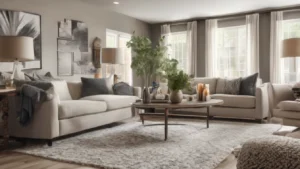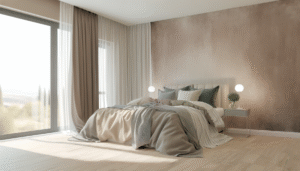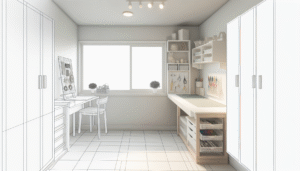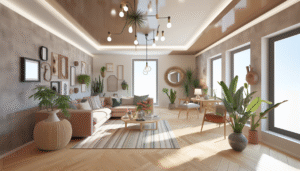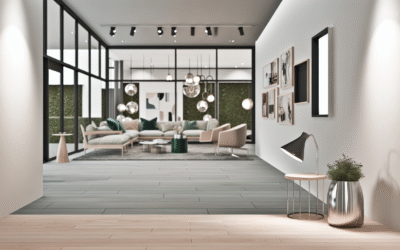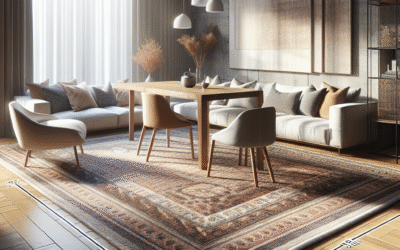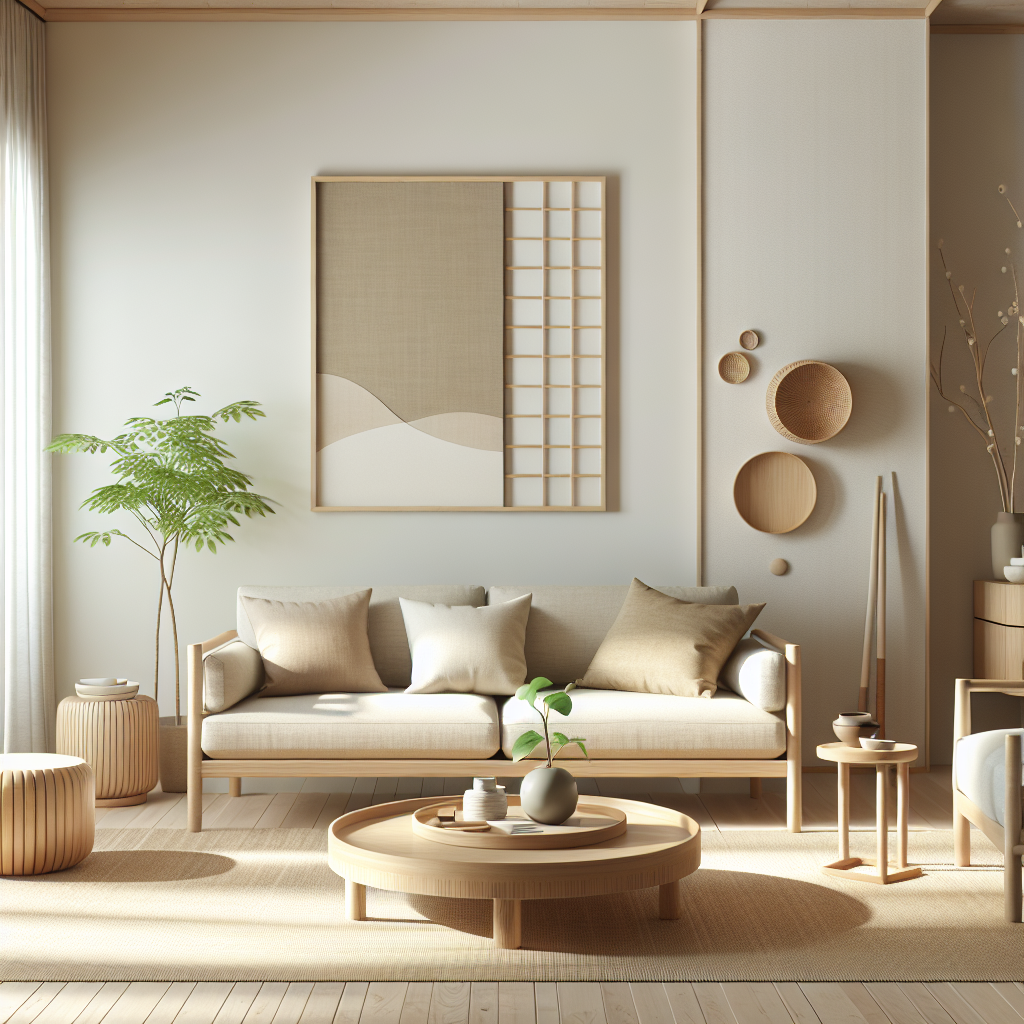
Introduction
Have you ever walked into a room that instantly calmed your mind? That serene ambiance often comes from Minimalist Japandi style. Blending Scandinavian simplicity with Japanese aesthetics, this style emphasizes minimalism and natural materials, particularly wood. In this comprehensive guide, you will explore how to master the Japandi look while incorporating beautiful wooden accents to create a tranquil and functional space.
Throughout this article, we will cover key design principles, color palettes, furniture selections, and actionable tips to help you achieve this chic aesthetic in your own home.
Understanding Minimalist Japandi Style
Before we dive deeper, it’s essential to know what Japandi style truly embodies. This design philosophy marries two distinct yet harmonious aesthetics:
1. The Essence of Minimalism
Minimalism advocates for “less is more.” It seeks to eliminate excess to create a feeling of calm and order. The focus is on function and simplicity, often utilizing a neutral color palette, uncluttered spaces, and clean lines.
2. Japanese Aesthetics
Japanese design emphasizes harmony with nature, craftsmanship, and the beauty of imperfection. It often features natural elements, intricate textures, and an appreciation for craftsmanship.
3. The Japandi Fusion
The blend of these styles forms a unique approach that is both functional and aesthetically pleasing. Typically characterized by:
- Neutral and earthy color tones
- Natural materials, primarily wood
- Simple yet striking furniture pieces
- Thoughtfully curated decorative objects
Key Design Principles of Japandi Style
1. Embrace Neutral Colors
Colors in Japandi style are typically muted and earthy. Think shades of beige, gray, and soft greens. These colors promote serenity and are perfect for a calming atmosphere.
2. Prioritize Functionality
Each item in a Japandi space serves a legitimate purpose. Furniture should be functional, allowing for easy movement and a tidy environment.
3. Incorporate Natural Elements
Wood is a foundational element in Japandi design. Consider incorporating wooden furniture, accents, and even flooring to bring warmth and texture into your home.
4. Balance and Harmony
Achieving balance between Japanese and Scandinavian elements is crucial. This can be represented by placing light and dark woods side by side or balancing large furniture with smaller decor.
Selecting the Right Wooden Accents
1. Choosing the Right Type of Wood
Popular woods for Japandi style include:
- Bamboo: Eco-friendly and elegant.
- Oak: Durable with natural grains.
- Pine: Lightweight, with a soft aesthetic.
2. Furniture Selection
Look for furniture pieces that are low to the ground with clean lines and simple forms. Examples include:
- Wooden coffee tables
- Minimalist desks
- Platform beds
3. Accessorizing with Wood
Consider wooden frames for art, bamboo cushion covers, and natural wood bowls for decor. This can enhance the aesthetic without overwhelming it.
Creating a Japandi Space in Your Home
1. Start with the Basics
Begin with decluttering your space. Remove unnecessary items and choose a few essential furniture pieces.
2. Set the Color Palette
Select a neutral base, then incorporate natural woods and a few accent colors like muted green or deep blue.
3. Add Texture and Layers
Utilize rugs, throws, and pillows to add softness to your space. Opt for natural fibers like linen or cotton.
4. Lighting Considerations
Choose soft, diffused lighting to maintain a warm ambiance. Use wooden light fixtures for consistency.
Benefits of Japandi Style
1. Calming Atmosphere
The simplicity and natural elements contribute to a peaceful environment, promoting relaxation and mental clarity.
2. Sustainable Choices
By opting for natural materials like wood, you make environmentally conscious decisions while enriching your home.
3. Timeless Elegance
Japandi combines two enduring aesthetics, offering a unique look that will never go out of style.
Conclusion
Incorporating the Minimalist Japandi style with wooden accents into your home can transform your living space into a sanctuary of serenity and functionality. By embracing the principles of minimalism, natural materials, and timeless design, you’ll create a calm and harmonious environment.
Ready to start your journey? Focus on these principles, and you’ll soon find that crafting your ideal Japandi space is a rewarding project that reflects both beauty and purpose.
FAQs
What is Minimalist Japandi Style?
Minimalist Japandi style combines Scandinavian simplicity with Japanese aesthetics, focusing on natural materials, functionality, and harmony.
What types of wood are best for Japandi style?
Common choices include bamboo, oak, and pine for their durability and natural appeal.
How can I incorporate wooden accents in my home?
You can use wooden furniture, frames, and decor items to enhance the aesthetic without overwhelming the space.
Can I mix colors in Japandi design?
Yes, while a neutral base is essential, you can incorporate muted accent colors to add depth.
Is Japandi style suitable for small spaces?
Absolutely! The emphasis on minimalism and functionality makes it ideal for smaller areas.
Content Disclaimer
The information provided in this article is for educational purposes only and does not constitute professional advice.
Categories
- Accent Walls & Ceilings (61)
- Art Curation & Gallery (62)
- Bedding Style Trends (68)
- Bedroom Makeover (81)
- Bohemian & Eclectic Styles (58)
- DIY & Budget-Friendly Decor (64)
- Eco-Friendly Design (62)
- Furniture Care (71)
- Home Decor & Design Ideas (162)
- Home Wellness Spaces (59)
- Integrated Outdoor Living (67)
- Japandi Style (61)
- Kids and Nursery Decor (59)
- Living Room Decor (79)
- Mix & Match Techniques (73)
- Modern & Contemporary Design (66)
- Rug Sizing & Placement (73)
- Scandinavian Design Inspiration (20)
- Seasonal Home Decor (79)
- Small Space Solutions (73)
- Wall Art & Painting Tips (77)
Recent Comments
Archives
Product Gallery
-
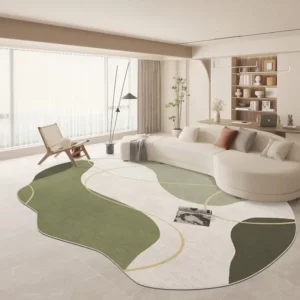 Large Area Green Rugs for Bedroom Nordic Living Room Decoration Shaped Carpet Irregular Plush Lounge Rug Home Thick Washable Mat
Rated 5.00 out of 5$54.94 – $346.41Price range: $54.94 through $346.41
Large Area Green Rugs for Bedroom Nordic Living Room Decoration Shaped Carpet Irregular Plush Lounge Rug Home Thick Washable Mat
Rated 5.00 out of 5$54.94 – $346.41Price range: $54.94 through $346.41 -
 Nordic Style Rugs for Bedroom Morandi Living Room Decoration Carpet Large Area Geometry Lounge Rug Home Cloakroom Non-slip Mat
Rated 5.00 out of 5$39.46 – $597.66Price range: $39.46 through $597.66
Nordic Style Rugs for Bedroom Morandi Living Room Decoration Carpet Large Area Geometry Lounge Rug Home Cloakroom Non-slip Mat
Rated 5.00 out of 5$39.46 – $597.66Price range: $39.46 through $597.66 -
 Irregular Shapes Living Room Decoration Carpet Modern Style Rugs for Bedroom Home Thicken Plush Rug Fluffy Soft Lounge Floor Mat
Rated 4.83 out of 5$55.91 – $347.82Price range: $55.91 through $347.82
Irregular Shapes Living Room Decoration Carpet Modern Style Rugs for Bedroom Home Thicken Plush Rug Fluffy Soft Lounge Floor Mat
Rated 4.83 out of 5$55.91 – $347.82Price range: $55.91 through $347.82

